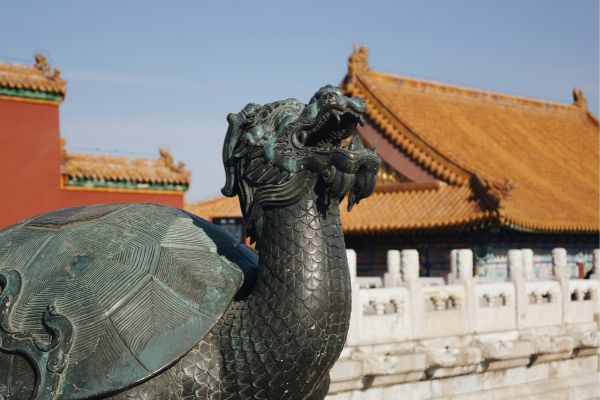
Key takeaways:
- China’s Supreme People’s Court elaborated on how Chinese courts apply the New York Convention when handling cases involving the recognition and enforcement of foreign arbitral awards, in a conference summary issued in December 2021.
- Failure to perform the “negotiation before arbitral procedure” does not constitute procedural irregularities under article V (1)(d) of the New York Convention.
- Where a Chinese court has already ruled that the arbitration agreement between the parties is not established, void, invalid or unenforceable, and the recognition and enforcement of the award will conflict with this effective ruling, the court shall find that it constitutes a violation of China’s public policy as stipulated in Article V(2)(b) of the New York Convention.
- In a case of recognition and enforcement of a foreign arbitral award, the party may apply to the court for interim measures (property preservation) as long as it can provide a guarantee.
China’s Supreme People’s Court (SPC) elaborated on how Chinese courts would handle cases involving the recognition and enforcement of foreign arbitral awards in a conference summary issued in December 2021.
This landmark conference summary is the “Conference Summary of the Symposium on Foreign-related Commercial and Maritime Trials of Courts Nationwide” (hereinafter the “2021 Conference Summary”, 全国法院涉外商事海事审判工作座谈会会议纪要) issued by the SPC on 31 Dec. 2021.
I. What’s the conference summary?
To start with, one needs to understand what is a “conference summary” in China and its implication for adjudicative work for Chinese local courts.
As introduced in our earlier post, the Chinese courts issue conference summaries from time to time, which can serve as guidance to the judges in their trials. However, the conference summary is not a legally binding normative document as the judicial interpretation, but only represents the consensus among the majority of judges, which is similar to the prevailing opinion. For more information about the Conference Summary, please read “How China’s Court Conference Summary Affects the Trial?”.
According to the previous explanation of the Second Civil Division of the SPC on the nature of the 2019 Conference Summary of Civil and Commercial Trial of Courts Nationwide (全国法院民商事审判工作会议纪要), a conference summary is not a judicial interpretation, and therefore the court, on the one hand, cannot invoke it as the legal basis for judgment, but on the other hand, can make the reasoning on the application of law according to the conference summary in the “Court Opinion” part.
The 2021 Conference Summary is based on the symposium on foreign-related commercial and maritime trials of courts nationwide held by the SPC on 10 June 2021, and is prepared by the SPC after considering the opinions of all parties.
It represents the consensus of Chinese courts on cross-border commercial and maritime litigation in China, and covers 20 matters, among which, the recognition and enforcement of foreign arbitral awards has five articles.
II. What does the Conference Summary say about the recognition and enforcement of foreign arbitral awards?
The SPC did not formulate systematic policies on this topic in the Conference Summary, but only clarified some specific issues, especially how Chinese courts apply the Convention on the Recognition and Enforcement of Foreign Arbitral Awards (the “New York Convention”).
1. Understanding Article IV of the New York Convention
Article 105. When applying to the people’s court for recognition and enforcement of a foreign arbitral award, the applicant shall submit corresponding materials in accordance with Article IV of the New York Convention. If the materials submitted do not meet the requirements of Article IV of the New York Convention, the people’s court shall find that the application does not meet the conditions for acceptance and will further rule to deny the application. If the application has been accepted, the court shall rule to dismiss the application.
Our comments:
If the application of a party does not meet the conditions for recognition and enforcement of a foreign arbitral award, the Chinese court will make a final ruling against recognition and enforcement, which means that the party cannot appeal or file another application.
By contrast, if it is only the materials submitted by the parties that do not meet the conditions, the court may rule to deny or dismiss the application. Please be aware that, in this case, the party may file an application again after meeting the conditions.
2. Understanding Article V of the New York Convention
Article 106. When the people’s court hears a case of applying for recognition and enforcement of a foreign arbitral award in accordance with the New York Convention, it shall, in accordance with Article V thereof, examine the matters for the non-recognition and enforcement of the arbitral award claimed by the respondent. The people’s court shall not examine the matters not falling within the terms of the submission to arbitration, or the matters beyond the scope of the submission to arbitration specified in Article V(1) of the New York Convention.
The people’s court shall, in accordance with Article V(2) of the New York Convention, examine whether the subject matter of the difference is capable of settlement by arbitration under the law of China, and whether the recognition or enforcement of the arbitral award would be contrary to the public policy of China.
Our comments:
The Chinese courts adopt two methods for the examination conducted in accordance with Article V of the New York Convention:
(1) The conditions set forth in Article V(1) of the New York Convention:
i. If the respondent raises an objection according to any of the conditions, the Chinese court shall examine whether the condition is met accordingly;
ii. If the respondent fails to raise an objection according to any of the conditions, the Chinese court shall not examine whether the condition is met.
iii. If the respondent raises an objection beyond these conditions, the Chinese court shall not examine its objection.
(2) The conditions set forth in Article V(2) of the New York Convention:
Whether or not a party raises an objection according to these conditions, the Chinese court should take the initiative to examine whether the conditions are met.
3. Failure to perform the “negotiation before arbitral procedure” does not constitute procedural irregularities under article V (1)(d)
Article 107. When the people’s court hears a case of applying for recognition and enforcement of a foreign arbitral award in accordance with the New York Convention, if the parties agree in the arbitration agreement that “the dispute shall be settled through negotiation first, and then submitted to arbitration if the negotiation fails”, one party applies for arbitration without negotiation, and the other party claims not to recognize and enforce the arbitral award on the grounds of the other party’s violation of the “negotiation before arbitral procedure” as specified in Article V(1)(d) of the New York Convention and the agreement between the parties, then the people’s court shall not support such a claim.
Our comments:
Even if the parties have agreed in the arbitration clause that they should conduct negotiation before resorting to arbitration, but failed to actually do so, the Chinese court would hold that this has not constituted a violation of the arbitral procedure and the arbitration agreement. Therefore, the Chinese court will not refuse to recognize a foreign arbitral award on this ground.
4. Contrary to the public policy
Article 108. When the people’s court hears a case of applying for recognition and enforcement of a foreign arbitral award in accordance with the New York Convention, if an effective ruling of the people’s court has already found that the arbitration agreement between the parties is not established, void, invalid or unenforceable, and the recognition and enforcement of the award will conflict with this effective ruling, the court shall find that it constitutes a violation of China’s public policy as stipulated in Article V(2)(b) of the New York Convention.
Our comments:
This article corroborates the previous practice of Chinese courts.
Since China’s accession to the New York Convention, Chinese courts have only refused to recognize and enforce foreign arbitral awards on grounds of contrary to public policy twice (in 2008 and 2018 separately). For more information, please read our previous post ‘China Refuses to Recognize a Foreign Arbitral Award on the Grounds of Public Policy for the 2nd Time in 10 Years’.
In the 2018 Case, the grounds of refusal of the Chinese court is: the Chinese Court has affirmed the invalidity of the arbitration clause.
Chinese courts’ views in the 2018 case and the 2008 case can be summarized as follows.
In the 2018 case, the parties concerned applied for arbitration in a foreign country even when the Chinese court had already affirmed the invalidity of the arbitration agreement. The Chinese court held accordingly that the arbitral award violated China’s public policy.
In the 2008 case, the Chinese court held that the arbitral award contained decisions on matters not submitted to arbitration and thus had violated China’s public policy at the same time.
5. The arbitral preservation during recognition and enforcement proceedings
Article 109. If a party applies to the people’s court for recognition and enforcement of a foreign arbitral award, and after the people’s court accepts the application, the party applies for property preservation, the people’s court may implement it with reference to the provisions of the Civil Procedure Law and relevant judicial interpretations. The applicant shall provide a guarantee for the property preservation, otherwise, the court shall rule to dismiss the application.
Our comments:
In a case of recognition and enforcement of a foreign arbitral award, the party, like the party in a case of enforcement of a Chinese judgment in China, may apply to the court for interim measures, which are referred to as ‘property preservation’ in China.
Interim measures can prevent the respondent from transferring property, which would further result in the applicant’s failure to collect the debt from the respondent. The interim measures usually taken by the court include: sequestering real estate, seizing movable property, freezing bank accounts, sequestering equity or stocks, etc.
In order to prevent the applicant from abusing the interim measures, the court will require the applicant to provide a guarantee. Chinese banks and insurance companies may provide such third-party guarantee services for the applicant.
Contributors: Guodong Du 杜国栋 , Meng Yu 余萌









